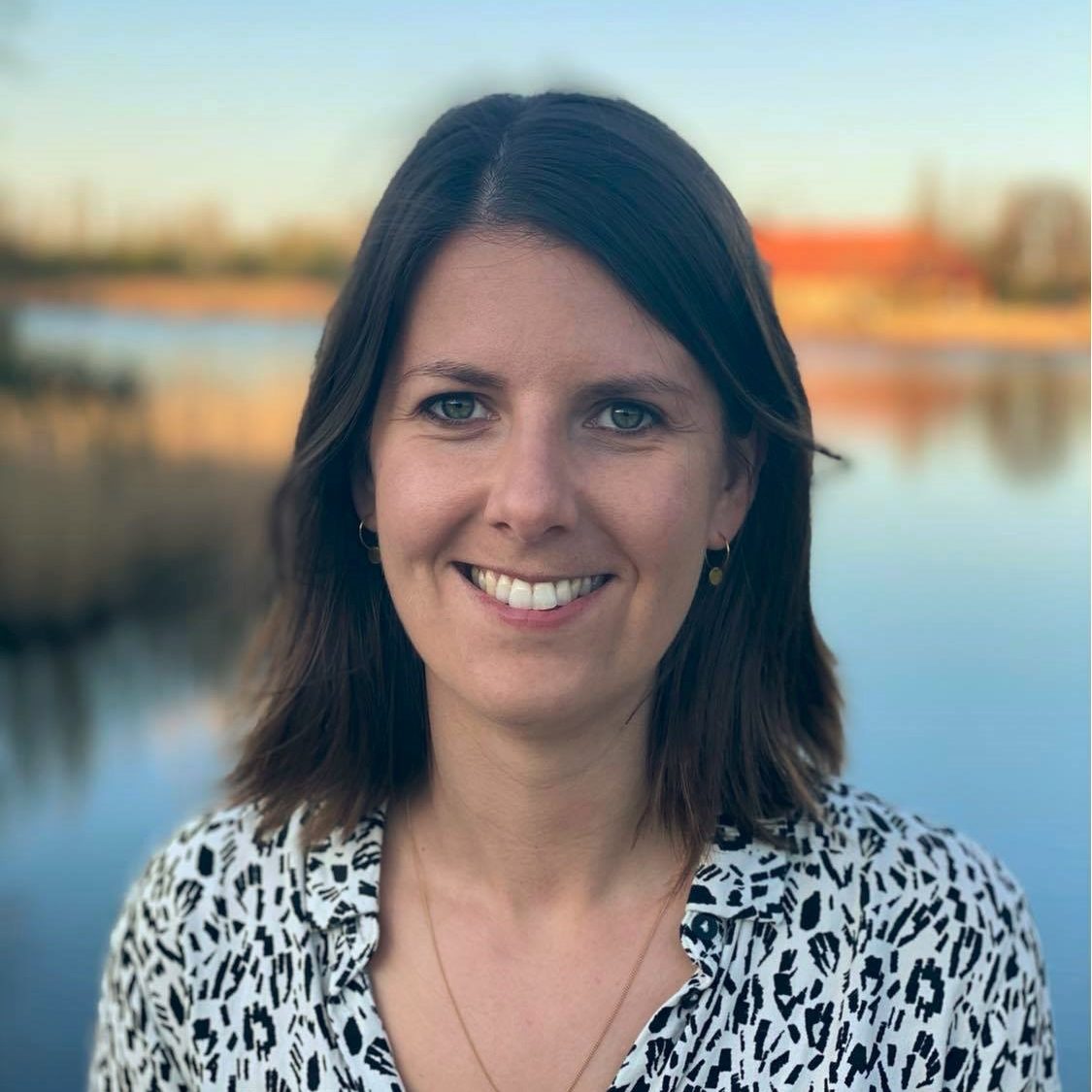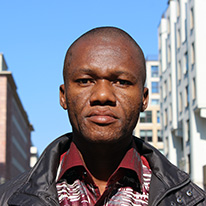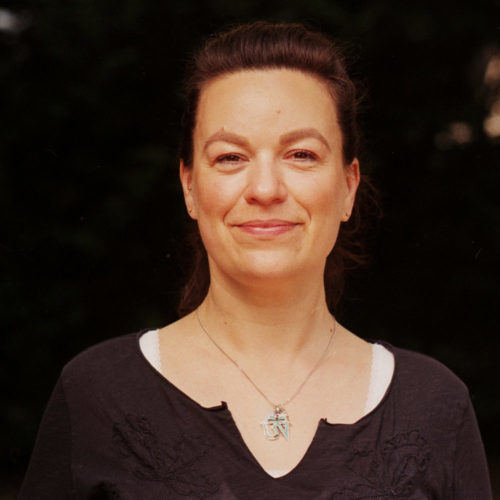THESys Graduate Program
Since 2013, the THESys Graduate Program has been home to an international and interdisciplinary group of doctoral researchers who have gone on to work in exciting new fields. Below you will find a collection of impressions from past alumni.
Dr. Cecilie Friis

“I was a member of the THESys Graduate Program from January 2014 to June 2017 and during that time I had the opportunity, advantage and pleasure of being part of a dynamic, interdisciplinary and ambitious academic environment that greatly contributed to my doctoral studies. Specifically, taking part in interdisciplinary program ‘forces’ you to think about your work in a broader scientific context and you are often challenged to present your research in new ways that are understandable for outsiders. For me, this has not only been valuable training on a personal level, but I also think that it is highly important if we want to address the challenges facing our societies under transformation of human-environment conditions. In addition, through the THESys Graduate Program Travel Scholarship I have been able to extent the international scope of my research and academic network. I have been supported in both my primary research activities with co-funding of fieldwork in Laos, which has been important since it can be difficult to find funds for independent and individual fieldwork research at the university or beyond, and I have been able to do a very fruitful research stay at Stanford University at a crucial time in the development of my third chapter. I am certain that the training and experience I have gained through the THESys Graduate Program will be valuable in the next phase of my research career.”
Cecilie was a postdoctoral researcher at IRI THESys from April 2017- April 2020. She defended her PhD thesis titled ‘Land use change in a globalised world. Exploring the relevance of the telecoupling framework in the case of banana plantation expansion in northern Laos’ at the Geography Department, Humboldt-Universität zu Berlin in June 2017 and was awarded the grade Summa Cum Laude. She holds a Master of Science in Geography & Geoinformatics from the University of Copenhagen, and was working as a Research Assistant at the Department of Geosciences and Natural Resource Management at the UCPH prior to joining IRI THESys.
Dr. Frederick Dapilah

“The THESys Graduate Program has contributed immensely in the development of my academic career. The contents and quality of the mandatory courses offered in the THESys Graduate Program are well suited to my PhD topic and academic career development. In addition, the seminars, workshops and the bi-weekly colloquiums made it possible for the development of my soft skills and key research competencies. Moreover, the program being an interdisciplinary and international one provided opportunities for the exchange of knowledge among and between different research fields in an intercultural environment. This, I find to be vital for future collaboration and networking, a crucial ingredient for my professional development and growth in academia and research.”
Frederick Dapilah was a PhD candidate at the Geography Department and IRI THESys, Humboldt-Universität zu Berlin, studying climate change adaptation in northern Ghana. He holds a B.A. degree in Integrated Development Studies (2006) from the University for Development Studies, Tamale, Ghana and a Master of Philosophy degree in Geography and Resource Development (2011) from University of Ghana. Prior to obtaining his master’s degree, he worked at University for Development Studies, Faculty of Planning and Land Management as a Teaching and Research Assistant between 2007-2012. Since 2013, Frederick worked as a Lecturer in the Faculty of Planning and Land Management, University for Development Studies where he taught courses in Urban Studies, Disaster Management and Fundamentals of Geography.
Dr. Letícia Santos de Lima

“The interdisciplinary training received through the IRI THESys Graduate Program was fundamental for my application to my current position and my new employers regarded my interdisciplinary background as a plus in my curriculum. For the not-so-near future, I will apply for academic and/or policy-related positions in my home country, Brazil. One thing that I keep in mind is that I would like to carry the IRI THESys spirit throghout my whole career and keep interacting with the IRI community.
In addition to the interdisciplinary training received as I described above (which was determinant to get my new job), the THESys Graduate Program provided me many opportunities to grow not only as a professional researcher but also as a human-being. Every opportunity to get together with researchers from different disciplines and debate current human-environment issues helped me to shape my way of looking at the world and think about potential solutions for these issues. This regular contact with the THESys community also gave me the chance to learn an attentive listening to different languages and to present my ideas in a way that is accessible to others that do not come from the same background. This interdisciplinary communication enriched my knowledge about the world and prepared me to navigate through different academic communities. In addition, the soft skills trainings that I received through the THESys Graduate Program gave me the chance to learn some techniques for the professional life that would otherwise take longer for me to learn.”
Letícia is an Environmental Engineer (Universidade Federal de Ouro Preto, Brazil) with a Master Degree in Environmental Systems Analysis and Modeling from the Universidade Federal de Minas Gerais. After finishing her master’s studies, she worked as a research associate for four years at Centro de Sensoriamento Remoto (Remote Sensing Center, CSR/UFMG) where she focused her research on spatial modeling as a tool for territorial planning, working with land use change simulations, hydrology, fire propagation and logging rent models. Together with the research team, she worked in direct contact with Brazilian federal agencies and international organizations in order to provide scientific support for regional policies. She worked also as a lecturer for two years at the Hydraulic Engineering and Water Resources Department at Universidade Federal de Minas Gerais, teaching and tutoring students from the Environmental and Civil Engineering undergraduate courses on topics related to watershed analysis and hydrogeology. Her PhD Thesis was titled ‘Evaluating the effectiveness and uncertainties of the Payments for Watershed Services mechanisms in Colombia.’
Dr. Lena Boysen

“The participation in the IRI THESys Graduate program was a great opportunity to become a better researcher and to successfully finish my PhD thesis. Most importantly, the interdisciplinary colloquia enabled me to better understand and present in front of audiences of other fields of research. Coming from a global modelling perspective, learning about regional and local studies from different disciplines made me aware of the conflicts and opportunities in the “real world”. Furthermore, the participation of workshops for e.g. slide-writing and communication (with funding from IRI THESys) made me a better and more confident presenter at conferences and seminars. The funding for a research stay at the University of Exeter in April 2016 opened up the door for collaborative work and knowledge exchange that was and still is very beneficial for my career as a climate researcher. At last, the IRI THESys is a great place to meet interested, critical, ambitious and friendly people which makes the membership even more valuable.”
Lena studied meteorology at the University of Hamburg from 2007 to 2012. After a semester abroad at the Meteorological Institute of the Stockholm University in 2010, she started a student assistant job at the MPI for Meteorology in Hamburg on model benchmarking and the visualization of ice core data sets for the IPCC AR5 WP1(2013). In her Master’s thesis she analyzed biogeophysical and biogeochemical effects of land-use and land cover changes on climate simulated by five Earth System Models participating in CMIP5. Since June 1, 2013 she worked as a PhD student at PIK and completed her thesis on ‘Scenario development and trade-off analyses of terrestrial carbon dioxide removal strategies for climate engineering in the context of global land-use’.



